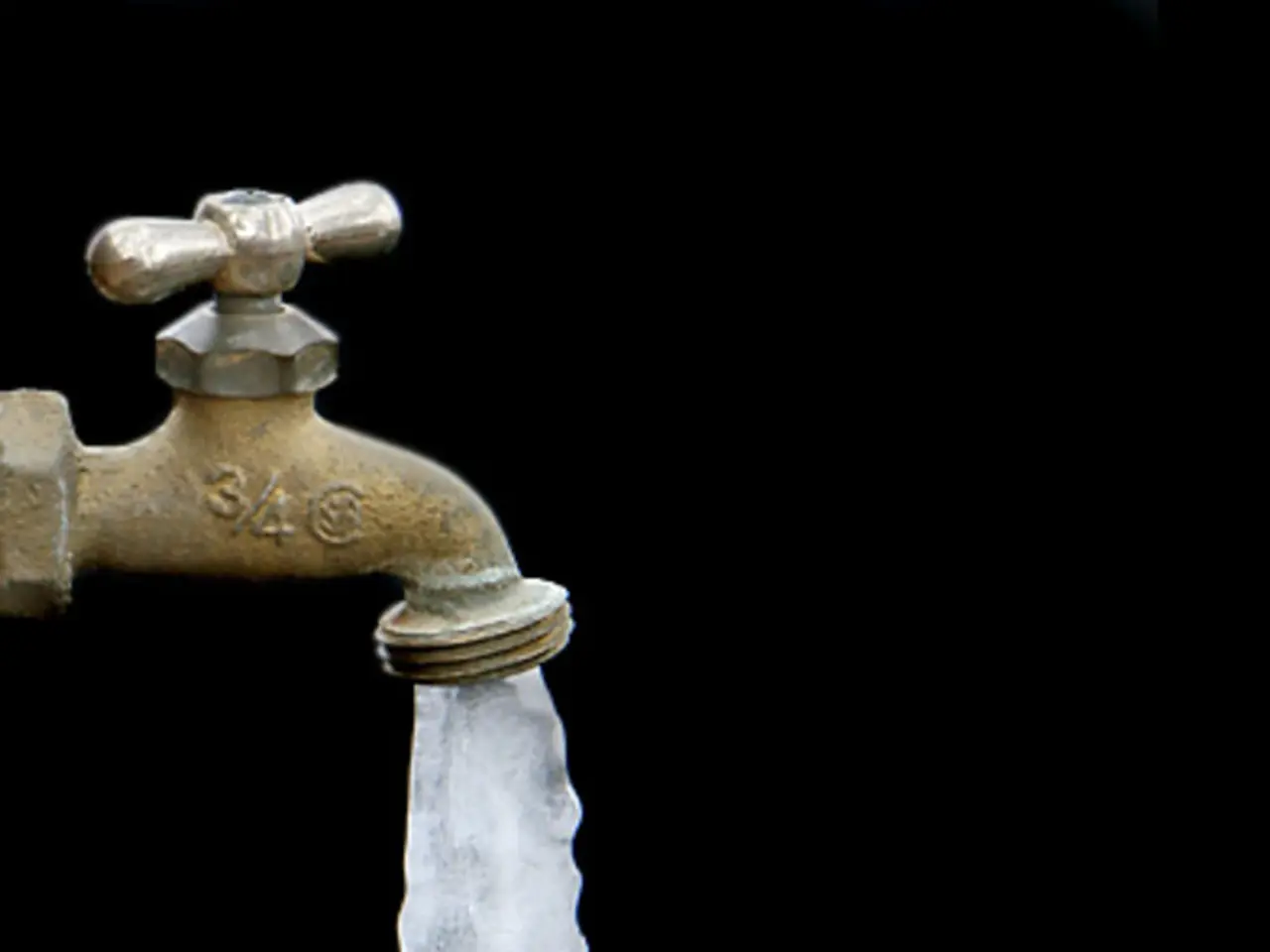Water restrictions imposed in various locations across Thuringia, prohibiting river water use. - Rivers in Thuringia's various locations deemed unsafe for consumption due to severe drought conditions
In response to the ongoing drought, several Thuringian municipalities have imposed bans on water withdrawal from rivers and lakes to conserve scarce water resources and protect aquatic ecosystems. These measures are crucial for preventing irreversible damage to surface waters in affected districts.
The Thuringian State Office for the Environment, Mining and Nature Conservation (TLUBN) has reported that at every third measuring point, groundwater levels are extremely low. Four more points also record very low groundwater levels, with only 5% of values measured between 1981 and 2010 being lower at these points.
The bans have significant implications for residents, affecting their ability to water their lawns or fill their garden ponds. The Saalfeld-Rudolstadt district, the Weimarer Land, and the Saale-Orla district are among the areas currently under such bans, with Hildburghausen and Saale-Holzland districts also joining this year. In some districts, like Sonneberg, Ilm, Erfurt, and Gera, bans have been in place for several years.
The potential long-term effects of not implementing these bans and water conservation measures include further depletion of surface water bodies, lowering of groundwater tables, and ecological imbalance in water ecosystems. To mitigate these risks, authorities emphasise the need for strengthening water conservation, improving water management, and enhancing the health of water ecosystems.
China, for instance, has set a policy vision by 2035 to significantly improve river protection, enhance water conservation, and foster healthier water ecosystems to foster harmonious relations between people and water.
The bans are an immediate response to the drought, ensuring that both surface water and groundwater can recover and sustain their functions adequately. This approach is critical for maintaining water supply security for both human use and the environment during and beyond drought episodes.
However, the ecological basic functions of many small flowing waters may no longer be guaranteed due to the drought, and the risk of long-term damage to surface waters is a concern in several Thuringian districts. The German Press Agency has conducted a survey on the bans in Thuringian municipalities, providing valuable insights into the current situation and the challenges ahead.
Despite the challenges, the situation is somewhat more relaxed in the Altenburger Land. The TLUBN has provided an overview showing pronounced low water levels almost everywhere in the state, highlighting the need for continued vigilance and proactive measures to protect Thuringia's precious water resources.
- In response to the low groundwater levels, which have been reported by the Thuringian State Office for the Environment, Mining and Nature Conservation (TLUBN), environmental science research and projects like community aid and vocational training in water management and conservation could potentially offer valuable solutions.
- Given the critical long-term effects of not implementing water conservation measures, such as further depletion of surface water bodies and lowering of groundwater tables, discusses about these issues in general-news and political debates can help to raise awareness and emphasize the need for stronger policies and regulations.
- To reinforce environmental-science education and promote sustainable methods to combat climate-change, vocational training programs focused on water conservation could be implemented in Thuringian schools and communities, thus empowering future generations to protect and preserve the state's water resources.






